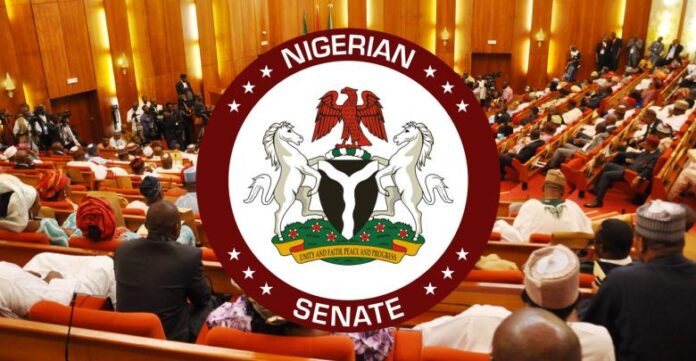The Houses of Assembly in Nigerian states have rejected the proposed financial and legislative autonomy for local governments.
The National Assembly disclosed this on Tuesday, during plenary, adding that out of 44 constitutional amendment bills, only 35 scaled through and have been passed by state assemblies.
The Senate subsequently directed the Clerk of the National Assembly to transmit the 35 constitution amendment bills that have so far met the requirement of the provision of section 9(2) of the constitution to President Muhammadu Buhari for assent.
The upper chamber also asked the remaining nine state Houses of Assembly that are yet to forward their resolutions on the constitution amendment bills to do so to fulfil their constitutionally imposed legislative obligation.
The Senate identified the state Houses of Assembly yet to forward their resolutions to the National Assembly as those of Gombe, Kebbi, Jigawa, Oyo, Sokoto, Zamfara, Kwara, Plateau, and Taraba states.
Meanwhile, the new amendment comes less than six months before the end of the tenure of the 9th National Assembly.
The leadership of the National Assembly recently lamented the delay by their counterparts in the states to consider and vote on the amendment bills sent to them in March 2022.
Several attempts had been made by the past assemblies to amend the 1999 Constitution but failed with huge sums voted for the exercise wasted.
Before the 9th Assembly, another attempt was made by the 8th Assembly. The immediate former Senate President, Dr Bukola Saraki, promised to rigorously work with his colleagues for the betterment of all Nigerians.
Available records showed that about 33 bills for constitutional review were available for review by the 8th Assembly, with 28 of them passed by the House. Out of this number, 17 got concurrence from the Senate, while four were passed with differences.
Nevertheless, 17 bills were sent to the State Houses of Assembly for concurrence, in accordance with the provisions of the constitution. But 12 of these came back to the House ratified, while five, including the bill on local government autonomy, were rejected, having failed to receive the approval of two-thirds of the state assemblies.
Assuming office in June 2019, just like the past assemblies, the 9th assembly lawmakers in their legislative agenda promised to repeal the offending provisions encumbering the country’s democracy by reworking and giving Nigerians a progressive document, it could also fail to do so like the 8th Assembly.





















